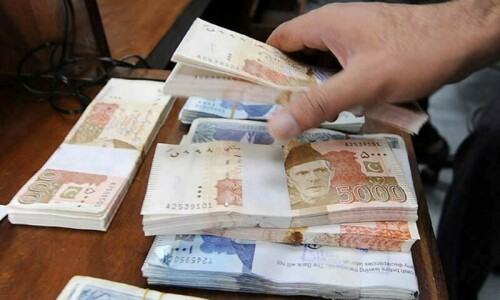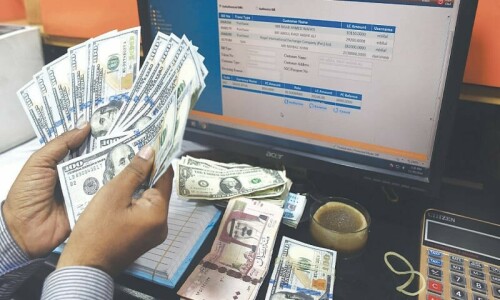KARACHI: Improvements in the external front of the economy helped the country attract $125 million during the four days of October, taking the total above $570m since July FY25.
According to the latest data released by the State Bank, inflows have reached $125 million, reflecting a sign of confidence in the economy. The inflow was not much different from June, when foreign inflows had reached $194m, raising the full-year investment to $581m.
Financial experts said economy on the external front has recovered from the two sides.
“The government succeeded in getting $7 billion loan from the IMF. This has stabilised the exchange rate and bolstered foreign exchange reserves,” said S.S. Iqbal, a financial expert.
T-bills attract more dollars following decline in interest rate
Most of the financial experts believe the Shanghai Cooperation Organisation summit would help Pakistan get some relief on debt servicing and attract foreign investment.
Pakistan is keen to jump-start projects under the China-Pakistan Economic Corridor (CPEC) and remove hurdles being faced by investors.
Other experts believe, however, that making the country friendly for investors would take time. They argue that investors never put their money in a place plagued with uncertainty.
“Islamabad has been sealed; armed forces have taken control of the capital. This is enough for investors to realise the situation is not normal for any new venture,” said a researcher.
Risk-free investment
Experts said investment in t-bills is for the short term and risk-free as the government provides sovereign guarantee to investors. The entire investments can be withdrawn at any moment, recalling the shock suffered during the Covid-19 outbreak.
A report released by Topline Securities said foreign investors had staged a strong comeback to the domestic debt market since January this year, driven by the return of stability in the rupee-dollar exchange rate over the past several months and the offer of a significantly higher rate of return on T-bills, compared to 6-7 per cent on debt securities in developed countries around the world.
Foreign investments remained limited to three countries. The biggest investment of $100 million in the four days of October was from Britain, while $20m and $5m came from the UAE and Singapore, respectively.
The country has received a total of $571m since July 1 while the outflow during the same period was $278.6m.
Last month, the Federal Open Market Committee (USA) chose to lower its key overnight borrowing rate by half a percentage point, or 50 basis points, amid signs that inflation was moderating.
It was the first interest rate cut since the early days of the Covid pandemic. The committee has gained greater confidence that inflation is moving steadily towards the two per cent mark.
“This shows that the t-bills which still give up to 17 per cent yields to foreign investors would keep attracting investors in coming days,” said a senior banker.
Published in Dawn, October 16th, 2024













































Dear visitor, the comments section is undergoing an overhaul and will return soon.